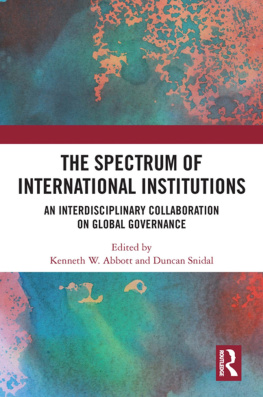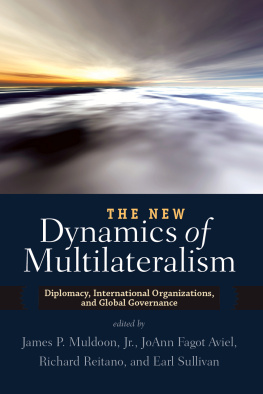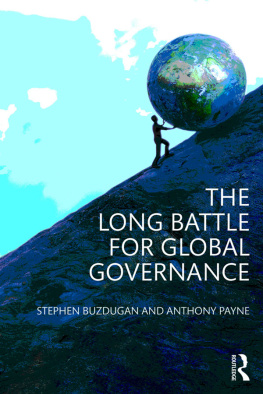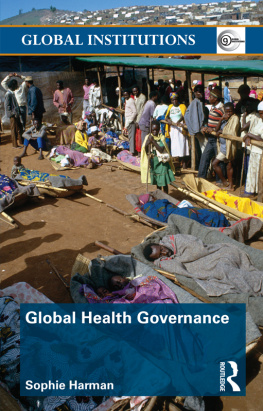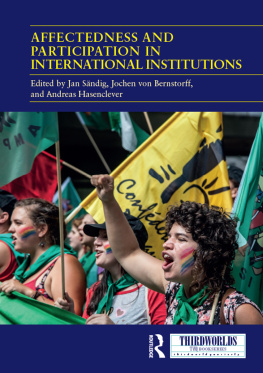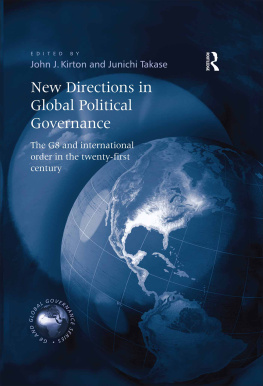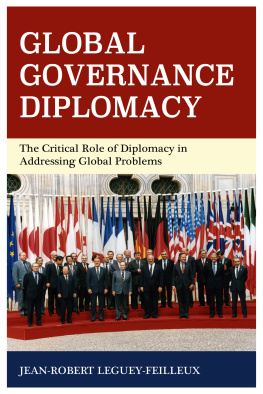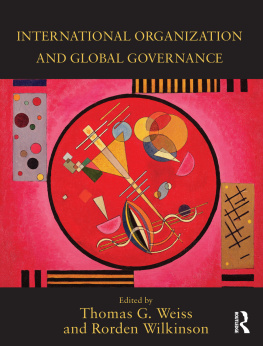Kenneth Abbott and Duncan Snidal are masters at showing the variety of institutional forms in the contemporary world: from formal to informal governance, hard to soft law, international to transnational organizations. They are attuned to agency and how it varies, depending on agents positions relative to one another, and they have coined key phrases, including the governance triangle and orchestration. For a sophisticated understanding of contemporary global governance, The Spectrum of International Institutions is essential reading.
Robert O. Keohane, Professor of International
Affairs Emeritus, Princeton University, USAAbbott and Snidal are arguably the two most influential thinkers about institutional design in world politics. This volume brings together an authoritative Best of collection of their recent works. Moreover, it links the pieces together into a whole that is more than the sum of its parts, and in doing so shows how magisterial this work is.
Michael Zrn, Director of the Global Governance
research unit at the WZB Berlin Social
Science Center; Professor of International
Relations, Free University BerlinFor three decades, Kenneth Abbott and Duncan Snidal have been both the leading team of interdisciplinary international-law-and-international-relations scholars, and the most astute students of the ever-growing complexity of global governance. This volume brings together their most important and insightful recent scholarship, illuminating the rise of private transnational governance, the proliferation of soft-law and informal regimes, and efforts to orchestrate governance. Essential reading for anyone who wants to understand global governance in the 21st century.
Mark Pollack, Professor of Political Science and
Jean Monnet Chair, Temple UniversityThe Spectrum of International Institutions
This book collects and integrates Abbott and Snidals influential scholarship on indirect global governance, with a new analytical introduction that probes the role of indirect governance techniques in the universe of global governance arrangements.
The volume presents the Governance Triangle, a now widely-used figure that demonstrates and helps to assess the proliferation of private and public-private standard-setting organizations, along with new forms of intergovernmental institutions, over recent decades. It then analyzes how intergovernmental organizations, regulatory bodies, and other global governors enlist and work through those organizations as intermediaries, so as to govern more effectively and gain knowledge, influence, and legitimacy. It demonstrates Abbotts and Snidals groundbreaking concept of orchestration, a mode of indirect governance in which influential governors catalyze, support, and steer intermediary organizations through wholly voluntary relationships. It also considers their more recent innovations in the theory of indirect governance. These include additional modes of governance, such as co-optation, delegation, and trusteeship, as well as the pervasive Governors Dilemma trade-off between a governors control of its intermediaries and the intermediaries competence.
This book will appeal to scholars and students in multiple disciplines, including international relations, global governance, law, and regulatory studies.
Kenneth W. Abbott is Jack E. Brown Chair in Law and Professor of Global Studies Emeritus, Arizona State University.
Duncan Snidal is Professorial Fellow and Professor of International Relations at Nuffield College, University of Oxford.
First published 2021
by Routledge
2 Park Square, Milton Park, Abingdon, Oxon OX14 4RN
and by Routledge
52 Vanderbilt Avenue, New York, NY 10017
Routledge is an imprint of the Taylor & Francis Group, an informa business
2021 selection and editorial matter, Kenneth W. Abbott and Duncan Snidal; individual chapters, the contributors
The right of Kenneth W. Abbott and Duncan Snidal to be identified as the authors of the editorial material, and of the authors for their individual chapters, has been asserted in accordance with sections 77 and 78 of the Copyright, Designs and Patents Act 1988.
All rights reserved. No part of this book may be reprinted or reproduced or utilised in any form or by any electronic, mechanical, or other means, now known or hereafter invented, including photocopying and recording, or in any information storage or retrieval system, without permission in writing from the publishers.
Trademark notice: Product or corporate names may be trademarks or registered trademarks, and are used only for identification and explanation without intent to infringe.
British Library Cataloguing-in-Publication Data
A catalogue record for this book is available from the British Library
Library of Congress Cataloging-in-Publication Data
A catalog record has been requested for this book
ISBN: 9780367629731 (hbk)
ISBN: 9780367629779 (pbk)
ISBN: 9781003111719 (ebk)
Typeset in Times New Roman
by codeMantra
Part I
Introduction
Kenneth W. Abbott and Duncan Snidal
As we write this, daunting challenges for global governance appear in every direction. Some challenges are long-standing, including threats of civil and international conflict, grave human rights violations, international trade disputes, and human migration. In many cases, current challenges are new instances of longstanding ones: while COVID-19responsible for widespread economic damage and (as we write) well over a million deathsis caused by a novel virus, the appearance and spread of infectious diseases have been persistent problems, addressed globally for well over a century.
Other challenges are of more recent origin. Climate change, often referred to as the defining issue of our time, was recognized globally only in 1992. The regulation of cyberspace and cybersecurity emerged as issues even more recently; these represent a larger class of problems stemming from technological advances, from artificial intelligence to genome editing. Both enduring and emerging issues, moreover, increasingly involve activities beyond the border, penetrating deeply into domestic society, economy, and governance.
This volume brings together selected scholarly papers from a 25-year interdisciplinary collaboration, focused on how global governance today addressesand can addresssuch problems. Remarkably, as it seems to us, our collaboration began shortly after the end of the Cold War, so we have worked together through the recurrence of many enduring issues and the appearance of many new ones. Equally important, we have seen the rise of important new modes of governance, driven both by demandthe need for collective action to address global challengesand by supplythe proliferation of new actors eager to participate in global governance. Our consistent approach has been to focus on these broad institutional developmentsmodes and techniques of governance, institutional forms, and interactionsas they apply across diverse global challenges, rather than on specific issue areas as such.
This approach has produced a clear trajectory in our workand in the broader governance literature. We begin this volume with one of our earliest papers (from 2001), which looks at standard-setting as an abstract theoretical problem; that is followed by two 2009 papers that examine the governance issues raised by the myriad of different regulatory standard-setting schemes that had emerged in the preceding two decades. The remaining six papers generalize the problem of governance. They reflect a substantial broadening of our initial perspective, in line with evolving actors, institutions, and practices: from international or interstate to transnational modes of governance; from hard or mandatory forms of governance to softer, more voluntary forms; and from international relations (IR) alone to a more integrated view of international, transnational, and domestic governance.

